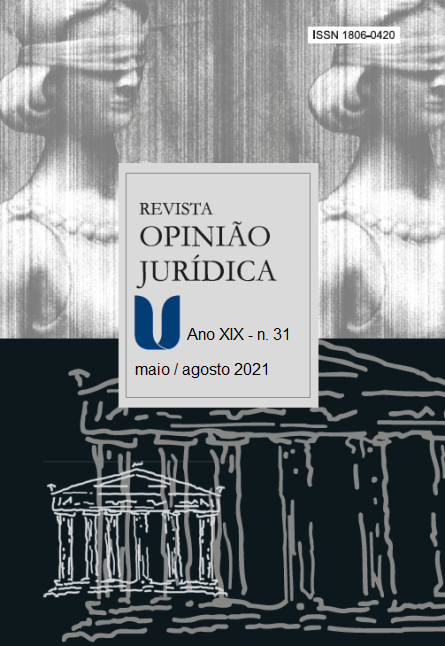LEGAL EDUCATION IN THE 21ST CENTURY AND THE ARTIFICIAL INTELLIGENCE
DOI:
https://doi.org/10.12662/2447-6641oj.v19i31.p1-32.2021Palavras-chave:
Legal education, Digitization, Artificial intelligenceResumo
Objectives: We sought to study the main reflexes of the digital economy that influence legal education, and some of the operational suggestions that accompany criticisms of that process. To this end, some of the main suggestions made by experts in law and education to transform legal education in the face of the technological ubiquity scenario were observed. In a second moment, the transformations that higher education has been undergoing with the introduction of AI in the market and in universities were specifically analyzed. Finally, both the reflexes of AI in legal education and suggestions related to transformations that legal education must undergo were studied.
Methodology: The hypothetical-deductive procedure method was used, with a qualitative and technical approach of bibliographic-documentary research, in this exploratory and interdisciplinary research.
Results: It was identified that legal education will have to move away from a retrospective epistemological stance, and evolve towards a prospective and projective stance, incorporating knowledge from technological areas and quantitative methodologies, without neglecting the exercise of traditional normative skills, communicative and narrative values that are highly evaluated by law professionals, thus emphasizing the need to foster student creativity. It is also concluded that higher education courses should incorporate coding in their curricula, in parallel with encouraging students' creativity and their communicative skills — however, a regulation should be developed in parallel, which must take into account the ethical risks of the use of AI in teaching. Finally, it is clear that the legal professions are not yet under a very pressing possibility of substitution by AI, but universities must make students aware that there are specific tasks in the legal professions that may be replaced by AI tools in order to advise them to focus on tasks that cannot be replaced by machines.
Downloads
Publicado
Como Citar
Edição
Seção
Licença
TRANSFERÊNCIA DE DIREITOS AUTORAIS
A submissão de artigo à apreciação da Equipe Editorial da Revista Opinião Jurídica implica, por este mesmo ato, a cessão, por parte do(s) autor(ES), para o Centro Universitário Christus – UNICHRISTUS, da referida OBRA para fins de reprodução, divulgação, distribuição, impressão, publicação e disponibilização, em qualquer forma ou meio que exista ou venha a existir, nos termos do art. 49 e os seguintes da Lei 9.610/98.
Parágrafo Primeiro. A cessão, objeto deste Termo, é feita a título não exclusivo e gratuito, abrangendo a totalidade da OBRA.
Parágrafo Segundo. A UNICHRISTUS poderá disponibilizar, para fins didáticos, a OBRA no todo ou em partes, vedada a alteração de seu conteúdo textual, ressalvadas correções e formatações que se fizerem necessárias.
Parágrafo Terceiro. A cessão é válida em quaisquer países, em língua portuguesa ou tradução, a critério da UNICHRISTUS.
DAS RESPONSABILIDADES
Ao submeter(em) artigo de sua lavra, o autor (e co-autores, se houver) assume(m), por este ato, a responsabilidade exclusiva pela integralidade do conteúdo da obra de sua autoria. Dessa forma, quaisquer medidas judiciais ou extrajudiciais concernentes ao seu conteúdo serão de sua inteira responsabilidade.
Parágrafo único. Em caso de pluralidade de autores, considera-se solidária a responsabilidade, ressalvadas as provas em contrário.































